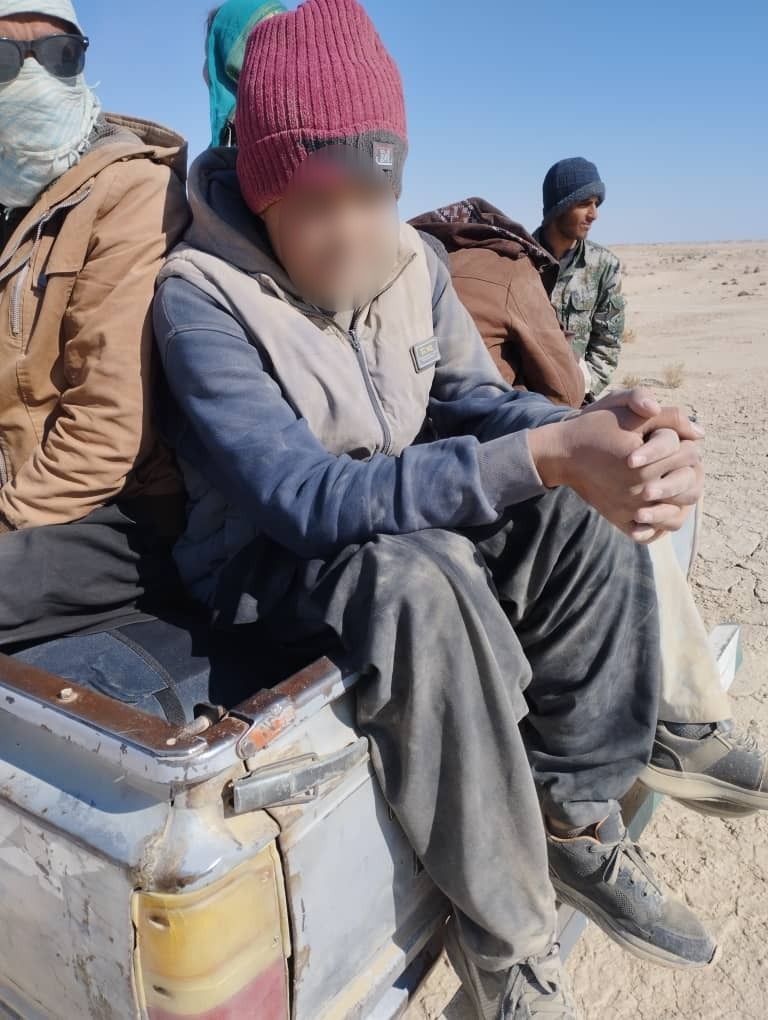Above, a 14 year old works in the mines in Pakistan to support his family. Him and his sister, Zarmina*, have endured more than most people would in an entire lifetime.
Born and raised in a traditional village in Ghazni, Afghanistan, Zarmina and her younger siblings Omid (16) and Nadia (15) are a part of the Hazara ethnic group, a minority that has faced relentless persecution.
From a young age, Zarmina’s inquisitive nature set her apart. She constantly questioned everything, including religious beliefs, often finding herself in trouble for challenging Islamic ideologies.
While preparing for her final school exams in Kabul in 2015, a suicide bomber attacked. Zarmina was wounded, and 33 of her classmates were killed. Most people thought she was among the dead due to the severity of the bombing.
In 2017, Zarmina began University where a professor recognised her religious curiosity and introduced her to a retired teacher who secretly taught Christianity. She found solace and faith in his teachings, and converted herself.
In 2018, Zarmina’s brother was caught in another suicide attack, leaving 48 students dead and 67 injured.
In 2019, while travelling to Kabul for a summer vacation with her friends, the bus she was on exploded. 34 people died, and many others, including Zarmina, were injured. She spent her time in the hospital with a close friend who’s entire body was covered in burns, and unfortunately he passed away in hospital.
When the Taliban seized control in 2021, they came for Zarmina’s father who was a member of the Afghan police/military. They took her parents and older brothers, and she has not seen them since. With their home destroyed, Zarmina and her siblings fled to the mountains and eventually crossed into Pakistan.
They experienced a third attack in 2022 that claimed the lives of 53 students, but the siblings were spared.
In Quetta, Pakistan, they faced homelessness and sought refuge in the only place they could: a mosque. Desperate for Christian fellowship, Zarmina connected with an African girl online. When the mosque found out, they were kicked out and forced to live on the streets.
A wealthy older man offered shelter for Zarmina and her brother. During this time, her brother was attempting to support them by working in the mines. He suffered extensive injuries whilst he was working, and could not keep going. The man told them that he would offer financial help, but demanded Zarmina’s hand in marriage. She refused, and the man demanded repayment. Desperate, she attempted to sell a kidney but was turned away due to malnourishment.
The siblings moved to Islamabad, where Zarmina now works part-time as a translator. At a Women’s Day Event, she poignantly stated, “Please pray that I can laugh, I can study, I can feel deep happiness and live without depression.”
Zarmina’s story is riddled with hardship that only further highlights her resilience and unwavering faith. It’s a powerful reminder of the strength God provides in the face of unimaginable adversity. Her journey displays the importance of religious freedom, which we can often take for granted. Please stand with Philoi in remembrance and awareness of tragedies such as what Zarmina has experienced, so that we can work toward change and amplify the voices of the unheard. Zarmina’s plea for prayers is a call to action for those who live in freedom. If you would like to offer families like this support, please pray with us and look at our donation options listed below.
*Names changed for security reasons.
WAYS YOU CAN HELP:
$75 can provide a refugee family with emergency food rations, covering their basic needs.
$50 can fund a month’s worth of school fees or supply a school pack for a refugee child.
$150 can assist a refugee family with rent or cover medical expenses.
$9,000 can support a refugee family’s resettlement application or cover flights to a safer location in their home country.
Reach out to us for more information or any questions you may have. To give, click here.

